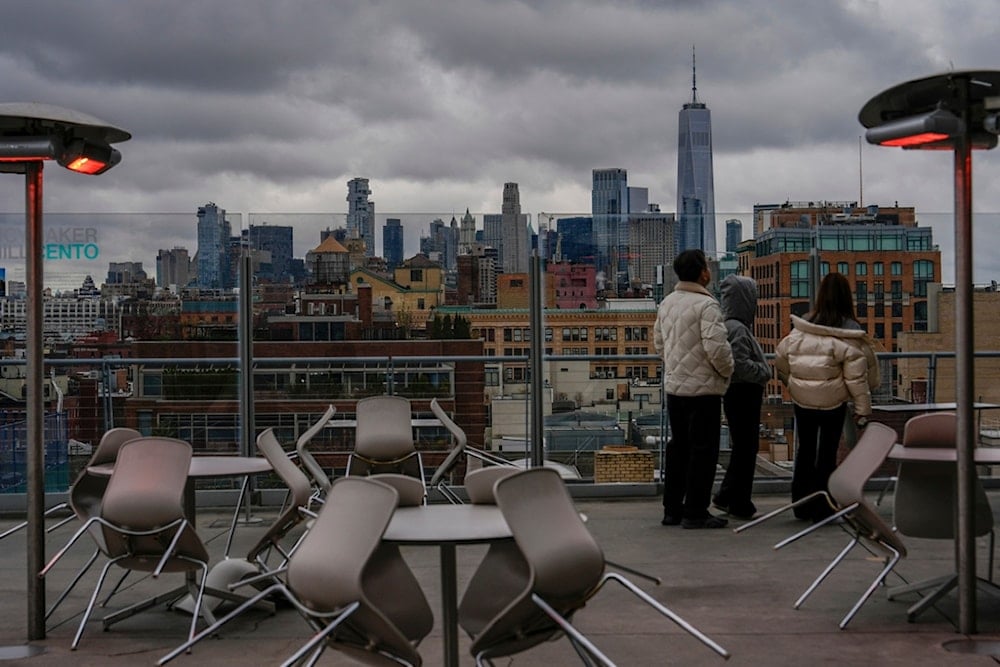Trump's economic approval drops to 37% as tariff rollback mulled
Only 37% of Americans now approve of his economic performance, down from 42% at the start of his term.
-

People view the lower Manhattan skyline from the Whitney Museum of American Art, Friday, Nov. 22, 2024, in New York (AP Photo/Julia Demaree Nikhinson)
Reuters on Wednesday published results from a joint poll conducted with Ipsos, revealing a sharp decline in public support for President Donald Trump's handling of the US economy.
Only 37% of Americans now approve of his economic performance, down from 42% at the start of his term. The poll, conducted between April 16 and 21 and involving 4,306 US adults, has a margin of error of about two percentage points.
The survey also showed that 75% of respondents are concerned that a recession may be on the horizon—an anxiety that coincides with the White House's increasingly controversial trade policy.
In response to mounting inflation, rising consumer prices, and business pushback, the Trump administration is now reportedly considering rolling back tariffs on Chinese imports, according to The Wall Street Journal.
The proposed reductions would scale back the top rates, currently at 145%, to somewhere between 50% and 65%. President Trump himself signaled a potential shift, stating, "145 percent is very high and it won't be that high."
Officials are also said to be weighing a two-tier tariff model that would impose lower rates (around 35%) on goods considered non-strategic, while maintaining at least 100% tariffs on critical items tied to national security.
Tariff Tensions
The policy reevaluation follows a wave of criticism after the White House enacted sweeping trade measures earlier this month, including a universal 10% tariff on all imports and reciprocal tariffs of up to 245% targeting nations with large trade surpluses.
Facing industry resistance—particularly from the tech sector—the administration has already backtracked on some measures.
On April 12, it announced exemptions for key electronics like smartphones, laptops, and semiconductors, which are heavily sourced from China. These exemptions, made retroactive to April 5, highlight a growing recognition that the blanket tariff approach could be economically damaging.
Read more: Trump exempts key Chinese electronics from harsh tariff regime
Meanwhile, tensions with the media have intensified. Elon Musk recently accused Reuters of accepting "millions of dollars from the US government for misleading the audience." Trump echoed the claim, calling on the agency to return the funds.
Thomson Reuters later clarified that the $9.1 million contract cited was for cybersecurity services, awarded during Trump's first term to a subsidiary, not for news reporting.

 3 Min Read
3 Min Read










